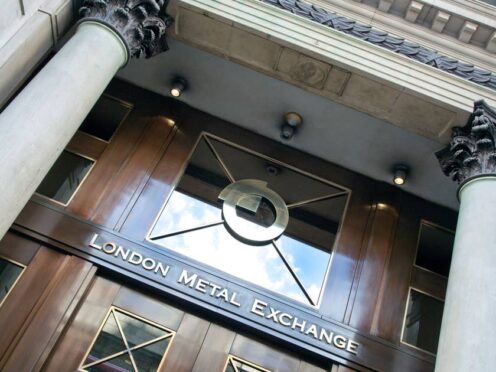
The UK and the US have announced that new aluminium, copper and nickel produced by Russia will no longer be traded at the world’s two largest metal exchanges.
The London Metal Exchange and the Chicago Mercantile Exchange will now ban Russian exports in an effort to hinder one of the country’s biggest sources of revenue, the Treasury said.
Both exchanges have warehouses all over the world and help to set global benchmark prices for the trade of base metals.
NEWS: Thanks to action so far by G7 partners, Russian metals exports have been reduced by a quarter between 2022 & 2023.
Today we're going further by banning the trade of new Russian aluminium, copper and nickel on US and UK global metal exchanges.
Find out more 👇
— HM Treasury (@hmtreasury) April 12, 2024
Any existing stock of Russian metal will be exempt from the measures to avoid destabilising the market.
UK Government legislation to directly ban imports of Russian metals was previously introduced last December.
Metal is Moscow’s biggest export commodity after energy, and although their value has been waning since the invasion of Ukraine, it has raised around 40 billion dollars (more than £32 billion) in revenue through the trade since 2022.
It is hoped the latest round of exemptions will help to cripple Vladimir Putin’s war machine by constraining Russia’s ability to make money from new metals.
The restrictions were designed to avoid market disruptions, according to a Treasury official.
They are not expected to prevent Moscow from being able to sell metals altogether but are likely to affect prices, so that Russian metals are being exchanged at a discount.
Chancellor Jeremy Hunt said: “Disabling Putin’s capacity to wage his illegal war in Ukraine is better achieved when we act alongside our allies.
“Thanks to Britain’s leadership in this area, our decisive action with the U.S. to jointly ban Russian metals from the two largest exchanges will prevent the Kremlin funnelling more cash into its war machine.”
The ban is the latest in a wide-ranging package of sanctions the UK has imposed on the Russian economy.
More than 2,000 individuals and entities having been sanctioned since Russia launched its full-scale invasion of Ukraine, the Treasury said.
Sanctions Minister Anne-Marie Trevelyan said: “Today’s action ratchets up economic pressure on Putin, further depriving him of the key resources and revenue streams he needs to fund his illegal war in Ukraine.
“We have now imposed extensive trade sanctions on Russian-origin oil, gas, gold, diamonds, iron, steel, and base metals, dealing a heavy blow to Putin’s war economy. But we must continue to work with our allies to further tighten the screws on the Kremlin.”

Enjoy the convenience of having The Sunday Post delivered as a digital ePaper straight to your smartphone, tablet or computer.
Subscribe for only £5.49 a month and enjoy all the benefits of the printed paper as a digital replica.
Subscribe